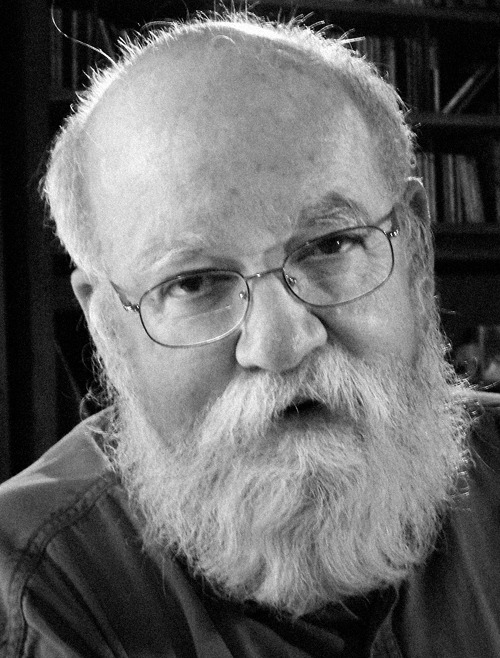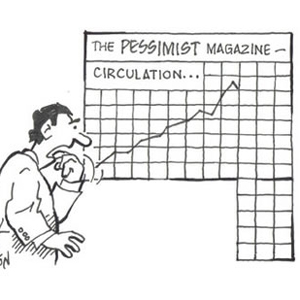
This article is a preview from the Summer 2017 edition of New Humanist. You can find out more and subscribe here.
For over half a century, the philosopher and scientist Daniel Dennett has sought to answer two questions: how come there are minds? And how is it possible for minds to answer this question? The short answer, Dennett argues, is that minds evolved – a proposition that has implications for the major cultural and scientific debates of our time. His new book, “From Bacteria to Bach and Back” (Allen Lane), is his most thorough exploration of the territory yet, drawing on ideas from computer science and biology.
How exactly would you define consciousness?
Defining it is not a useful activity. Consciousness isn’t one thing. It’s a bunch of things. So I wouldn’t want to fall into the trap of giving a strict definition.
Okay, let’s put it another way: what does consciousness consist of?
It consists of all the thoughts and experiences that we can reflect on and think about. We also know that there are lots of things that are unconscious in us that happen too.
Why are people resistant to seeing the mind described in the computational terms you use?
Because they are afraid that this method of thinking about the mind will somehow show that their minds are not as wonderful as they thought they were. On the contrary, my approach shows, I think, that minds are even more wonderful than what we thought they were. Because what minds do is stupendous. There are no miracles going on, but it’s pretty amazing. And the informed scientific picture of how the mind works is just ravishingly beautiful and interesting.
What is your main disagreement with the Cartesian view that mind and body are separate?
That it predicts nothing. And it postulates a miracle. Saying something is a miracle is basically just deciding that you are not even going to try. It’s a failure of imagination.
Why was the arrival of language such an important moment in the development of human beings?
Other mammals and vertebrates can have social learning and elements of culture. They can have local traditions which are not instincts; those are carried by the genes. Traditions are carried by organisms imitating their elders, for instance. There are the rudiments of cultural accumulation, or cultural exploitation, in chimpanzees, and in birds, for example. But it never takes off. Let’s be generous and say there might be a dozen ways of saying things by imitation. But we humans have hundreds of thousands of things that we pass on that we don’t have to carry in our genes. It’s language that makes all of that possible.
Do the minds of humans differ from the minds of other animals because of culture?
Yes, I think that’s the main reason for it. Our brains are not that different from chimpanzees’ brains. They are not hugely bigger, they are not made of different kinds of neurons and they don’t use much more energy, or anything like that. But they have a lot of thinking tools that chimpanzees don’t have. And you can’t do much thinking with your bare brain. You need thinking tools, which fortunately we humans don’t have to build for ourselves. They have already been made for us.
Noam Chomsky does not look favourably on such an account, which holds that language evolved gradually. Where do you two disagree?
Chomsky has been a leading theorist of language for decades. But he refuses to abandon the idea that language didn’t develop by gradual evolution. He wants to have some kind of giant leap. Perhaps an explanation in physics, I guess. I find that incredible.
Have you ever approached him on this subject and tried to argue it out?
Oh yes. He’s a brilliant argumentative technician and rhetorician, who views discussion more like combat. So it’s not much fun to talk with Chomsky.
Many people reject the idea that the brain is just neurons and material substance. What is the best way to convince people otherwise?
If I knew the answer to that I would have used it by now. But the main way is to take presumed stumbling blocks, and presumed difficult questions, and show that they are not so hard after all. And show paths in which a materialistic and naturalistic account [of the brain] can actually account for them. Whether it is dreaming, or colour perception, or having a tune running through your head. In other words: whatever you think is really impressive about a mind, I will try and convince you that we can have a model that can do all of that without involving – at any point – a miracle.
What about people – even the non-religious – who say art and literature come from a mysterious or sacred place in the mind?
That is a favourite example. But saying it is not a proper reason to believe it. It’s like people saying: I can see how dogs function but look at birds, they can fly, they must have immaterial souls. No! There are non-miraculous reasons which show how birds can fly. They don’t have to have some special dualistic stuff in them that makes flight possible.
You mention Freud, very briefly, in the new book. How would you rate his work?
Freud had hoped for a neurological physical theory, which he then abandoned. He decided instead to go his signature way. Too bad, because had he not abandoned his quest for a neurological physical theory he might have made some real progress. There are some suggestive themes in Freud’s work that are worth taking seriously. But I don’t think his work answers any important scientific questions.
Is Freud more important to culture, perhaps?
Freud is important to culture in the way that novels are important to culture. But novels don’t solve problems. They don’t give you theories. They do, however, give you insights into people and their behaviour: their fears and hopes, for example.
Would a plausible account of how language evolved help our understanding of consciousness?
It would help a lot. But it’s not essential to get it right now. After all, the residual lack of knowledge about how life started on this planet doesn’t really impede our understanding about what life is.

